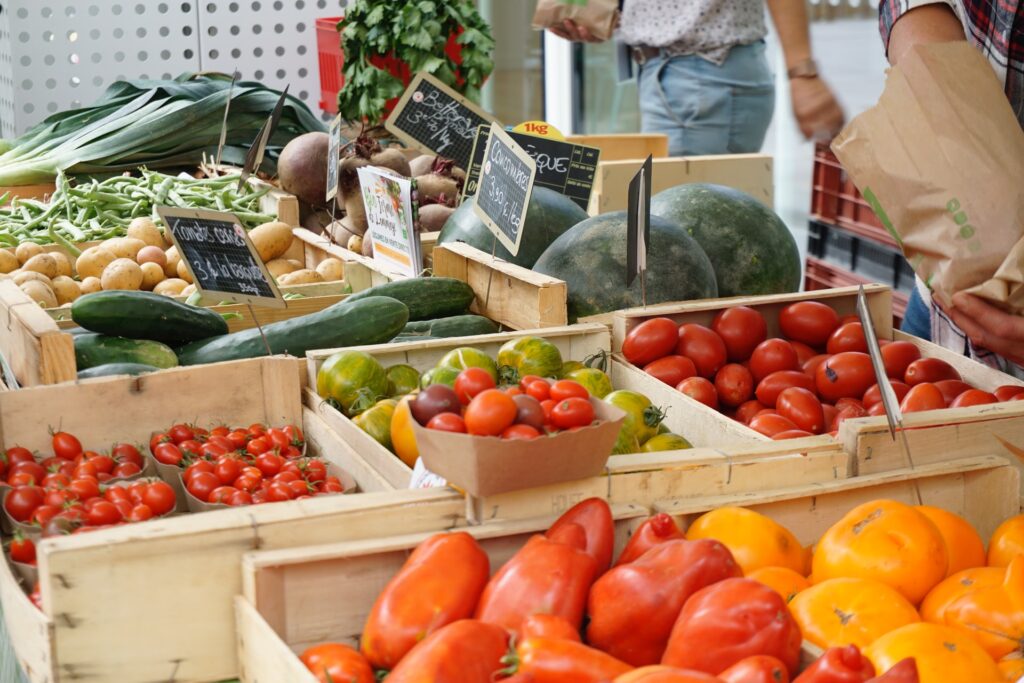Farmer’s Market Vendor Insurance – All You Need to Know About This Type of Policy

Farmers’ markets have never been more popular than they are now, as Americans have become more mindful of what they put into their bodies. Instead of buying genetically modified fruits and vegetables, people choose to buy fresh food directly from the farmers, so they drive to the farmer’s market every week.
Buying fresh food at one of the approximately 9,000 farmers’ markets around the United States is a joy for many Americans. But farmer’s markets aren’t just great to have around, as many have covered food supply shortages produced by COVID-19 shutdowns during the last months.
Consumer interest in local foods soared after grocery store supply chains were interrupted, as did fears about being exposed to the coronavirus while shopping. Farmer’s market operators were quick to react, experimenting with prepared items and drive-thru pickup. In fact, in 2024, several farmers’ markets saw their highest-ever sales.
All of this has made you consider becoming a farmer market vendor? Then besides good products, an organized stand, and a smile on your face to greet customers, you will also need insurance. Farmers’ market sellers require liability insurance for a variety of reasons, which will be discussed in the following article, so keep reading to find out more.
So, what exactly is farmers’ market vendor insurance?

Liability coverage is the most frequent form of farmers’ market insurance, split into public liability insurance and general liability insurance. Public liability protects vendors from consumer claims regarding injuries sustained near their stand, such as tripping over your power cords or something falling on them, and is typically the most cost-effective choice.
Still, most farmers’ market sellers choose to go for a general liability policy, which provides more comprehensive coverage at a little higher cost than a public liability policy. General liability insurance protects you not only from accident claims but also from product liability claims from consumers, such as when rotten products are sold mistakenly.
Is farmers market vendor insurance mandatory?
Produce vendors are facing more claims and litigation than they have ever faced before. Without sufficient coverage, a little claim against you and your business might bankrupt you, leaving you with thousands of dollars in unpaid bills. This would be enough to knock most modest farmers’ market sellers out of business.
Despite the fact that becoming a farmers’ market vendor is a generally low-risk enterprise, things can still go wrong. You can, for example, accidentally sell produce that contains bacteria and cause sickness to a consumer. Your insurance policy will almost certainly cover all claims if you have the proper coverage. If you don’t, however, you risk paying thousands of dollars in hospital bills and compensation for the individual that got sick.
Who can benefit by getting insured?

Put simply, if you are dealing with the public, you are at risk of being served with a liability lawsuit. Be it an injury, damaged goods, or any other reason, any customer with a right to do so can sue you and request damage compensation.
Those who serve food and food produce are exposed to a lot of responsibility. Food trucks and other food sellers, ice cream stores, and farmer’s market vendors fall into this category. It’s possible that a client will trip over your display. It’s possible that your cooking equipment will catch fire. Products sold at the market can be contaminated, resulting in sickness.
Artisans and other sellers selling handcrafted crafts, jewelry, or other items may also be sued. A client might be injured if a table or booth collapses. Someone might file a lawsuit claiming that one of your goods caused them damage. A competitor might accuse you of stealing one of their designs.
How much does it cost to get insured?
Just as with other types of insurance products, there is no way to know for sure how much money you need to pay for a farmers’ market vendor policy. To calculate the price, insurers take into account various aspects, such as location, how many days the vendor goes to the market, annual revenue, and potential risk factors.
In general, a policy that covers $1 million in general liability should cost the vendor around $420 yearly, but this is not set in stone. To get a more accurate perspective, you can visit websites such as Insuranks to compare prices and determine the vendor who offers the best policy for your needs.
The majority of farmers’ market sellers get full-term coverage and pay their premiums on a monthly basis. If you’re a traveling vendor or only open for a few days a month, though, you could consider buying temporary or on-demand coverage, as it can be more cost-effective.
Most insurance companies provide on-demand coverage and, because these plans are designed to give coverage for certain days, you’ll just have to pay by the day rather than by the month.
Which type of insurance do I need?

Farmers’ markets feature a variety of merchants. While local farmers make up the majority of the vendors, food trucks, artisans, and other vendors are also prevalent.
Depending on the type of business you conduct, the following are the type of insurance you may be required to have:
- Liability insurance for market vendors: suited for those selling homegrown goods
- Liability insurance for artisan vendors: suited for those selling custom-created products at markets (paintings, handcrafted décor pieces, furniture, etc.)
- Liability insurance for food trucks: suited for those running a food truck inside a farmers’ market
If you are looking to buy farmer’s market insurance and want to get the best deal, we recommend comparing quotes from various providers and choose the one that suits you best. The insurance provider that another vendor at a farmer’s market chose to do business with may not be the best solution for you as well because businesses have different needs, resources, and preferences.
Most insurance providers are competing to attract more businesses and overpower their competitors, so don’t be afraid to negotiate and discuss your options.




